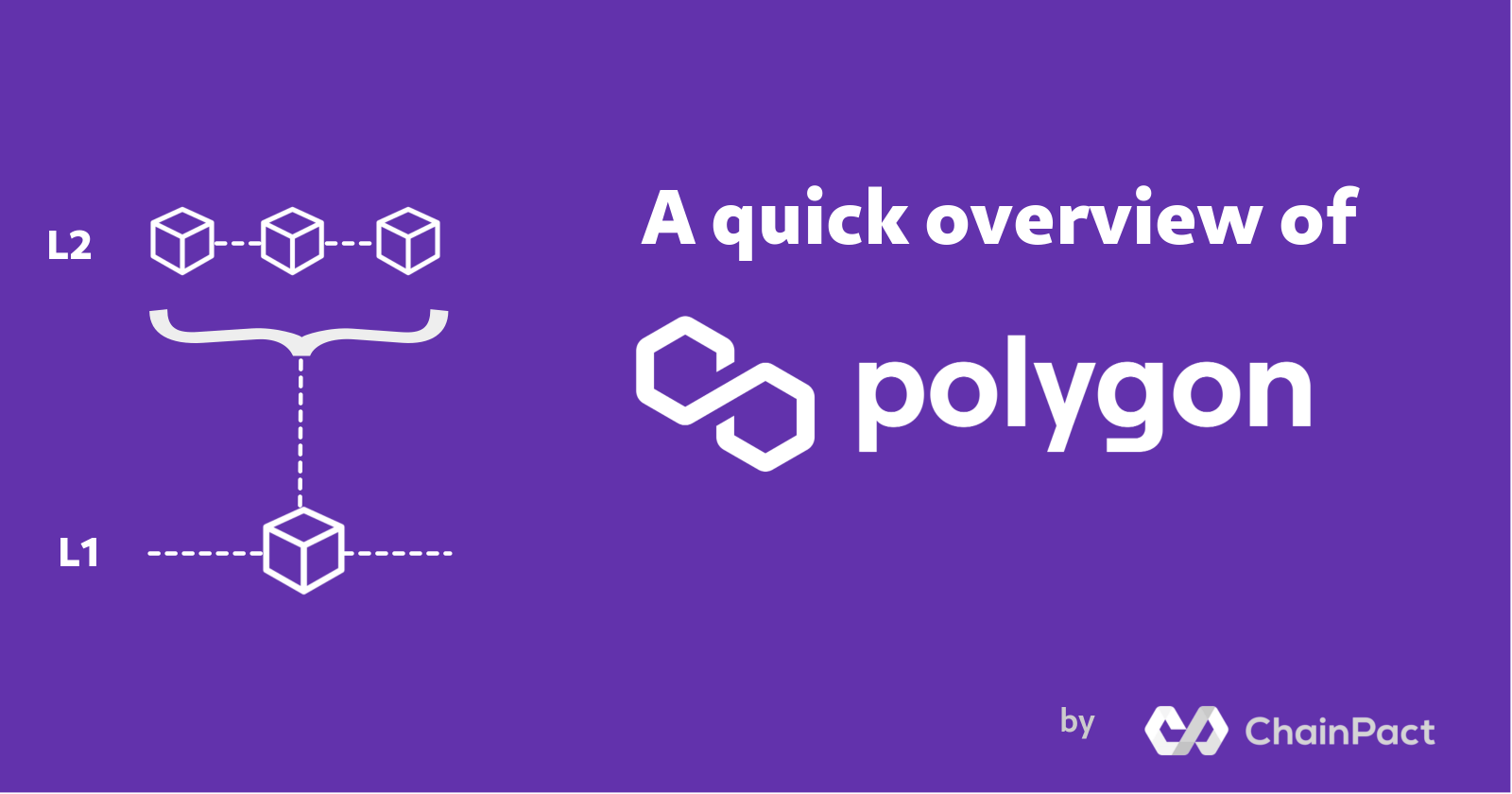A quick overview of Polygon
The scalable, cheap, secure scaling network on top of Ethereum
Polygon (formerly Matic Network) is a Layer 2 scaling solution for the Ethereum network, aimed at addressing the network's scalability and security issues. It operates as a separate blockchain that runs on top of the Ethereum network, allowing for faster and cheaper transactions.
Imagine being able to transact in mere seconds, without having to worry about gas fees eating up all your hard-earned crypto. That's exactly what Polygon offers. And the best part? It's fully compatible with the Ethereum network and its ecosystem, so all your favorite dApps, tokens, and smart contracts can easily be ported over to Polygon.
Here are some key points about Polygon you must know, as a blockchain professional or crypto enthusiast:
Ethereum/Solidity Compatibility: Polygon is fully compatible with the Ethereum network and its ecosystem, meaning dApps, tokens and smart contracts can be easily ported to the Polygon network.
Layer 2 solution: Polygon operates as a Layer 2 solution, meaning it operates on top of the Ethereum network, but it has its own separate blockchain. This allows for faster and cheaper transactions, as well as increased scalability.
Proof-of-Stake consensus: Polygon uses a Proof-of-Stake (PoS) consensus mechanism, where validators are chosen to create new blocks and validate transactions based on the amount of stake they hold. This provides a more energy-efficient and secure network compared to Proof-of-Work (PoW) consensus.
Multi-chain Architecture: Polygon has a multi-chain architecture, consisting of multiple independent chains known as "Polygon Chains". This allows for increased scalability and allows for multiple dApps to run on the network simultaneously, without affecting each other's performance.
Interoperability: Polygon is fully interoperable with the Ethereum network and its ecosystem, meaning tokens and smart contracts can easily be transferred from Ethereum to Polygon and vice versa.
Low gas Fees: One of the main benefits of Polygon is the reduced gas fees, allowing for cheaper and faster transactions compared to the Ethereum network.
Next time when using a dApp, try to see if Polygon network is supported and switch to that network for quick and cheap transactions!

